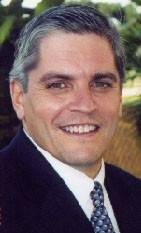From the heart of Jerusalem: You are what you do
Once, in the midst of a class, I noticed a student’s eyes begin to water. We were having a discussion about identity, and how we tap in to who we really are. In tears, he explained how he had arrived at Isralight in Jerusalem. He had been a concert violinist with enormous potential, until in a tragic freak accident; he got his hand caught in a car door. After all the hospital care and operations, his hand was left partially paralyzed, and his career in music was over. And he realized, with panic, that he had no idea who he was any more. Whenever anyone would ask ‘what do you do?’ his response had always been: “I’m a violinist.” But that was no longer true. So who was he?
If Lebron James stops playing basketball, then who is he? Is what I do really who I am? And if that’s all there is to it, then what happens when I can’t ‘just do it’ anymore?
There is a fascinating exchange in this week’s parshat Toldot, addressing this very issue.
Yitzchak wants to bless his elder son Esav before he dies. Rivkah, his wife, overhears Yitzchak’s request to Esav, tells Yaakov, the younger son, to disguise himself as Esau, in order to fool blind old Yitzchak into giving him the blessing instead.
Are these the role models Judaism presents us with? Bear in mind that this story is the beginning of the birth of the Jewish people, which is meant to be an ethical role model for the world.
Yaakov, at the urging of his mother, comes to Yitzchak and says “My father”,
to which Yitzchak answers, “here I am. Who are you, my son?” Yaakov then responds, “I am Esav, your first born.” (Genesis 27: 18-19)
What a strange conversation! And Yaakov’s response is not much better: “I am Esav your first born.” A blatant lie, issued simply to attain the blessings. This is Yaakov? This is the father of the Jewish people who incidentally is associated with truth?
Rashi, the famous commentary on the Torah, is so bothered by the prospect of Yaakov’s outrageous lie, that he tries to soften it, suggesting that Yaakov really meant ‘I am me, Yaakov, comma, and Esav is your first-born.’ (In other words, I am really Yaakov, and Esav, he is your first-born.)

 54.0°,
A Few Clouds
54.0°,
A Few Clouds 




